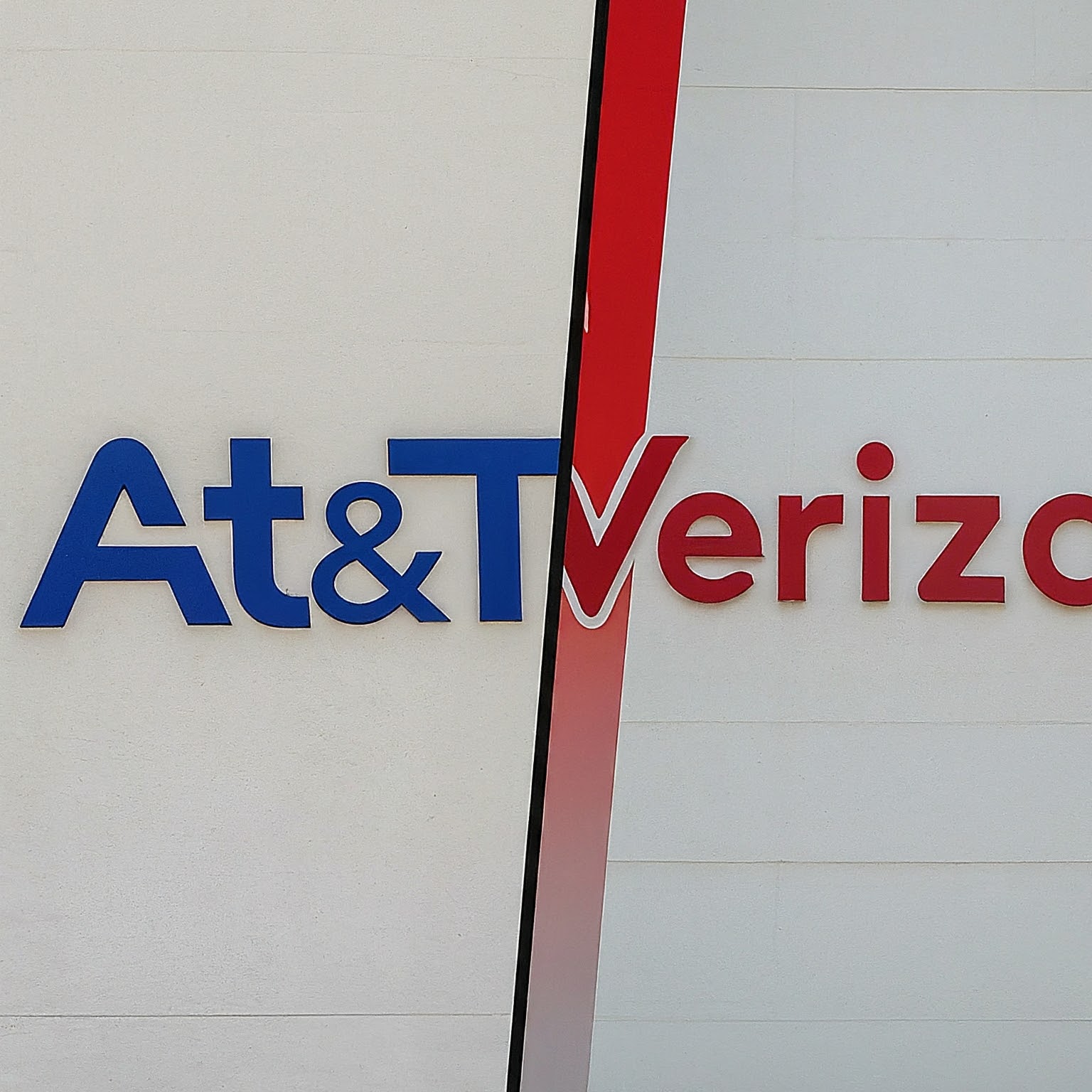For decades, AT&T and Verizon have been locked in a fierce battle for dominance in the American wireless market. Both companies offer a wide range of cellular services, from basic phone plans to cutting-edge 5G internet. But with a recent data breach at AT&T and an ever-changing technological landscape, which carrier reigns supreme in 2024? This comprehensive analysis will delve into the strengths and weaknesses of each company, helping you decide which provider best suits your needs.

Network Coverage and Speed
Network Reach: Both AT&T and Verizon boast expansive nationwide coverage. However, Verizon consistently edges out AT&T in rural areas. This can be a significant advantage for those who live outside major metropolitan hubs.
Speed Matters: When it comes to raw speed, Verizon takes the crown. The company has consistently bested AT&T in independent speed tests, particularly in download speeds crucial for streaming and large file downloads. However, the gap between the two providers has narrowed in recent years, with AT&T making significant strides in 5G network development.
The 5G Race: Both companies are heavily invested in 5G technology, promising blazing-fast internet speeds and lower latency. Verizon boasts a wider initial 5G rollout, but AT&T is quickly catching up. The key differentiator lies in the type of 5G offered. Verizon utilizes mmWave 5G, offering the fastest potential speeds but with limited range. AT&T focuses on sub-6 GHz 5G, providing broader coverage with slightly slower speeds. Ultimately, the “better” 5G technology depends on your individual needs – prioritizing speed or wider accessibility.
Plan Options and Pricing
Plan Variety: Both AT&T and Verizon offer a diverse selection of plans to cater to different usage needs and budgets. This includes individual plans, family plans, and prepaid options. However, AT&T tends to have a slight edge in plan variety, with more options for budget-conscious consumers.
Price Points: Here’s where things get interesting. Traditionally, Verizon has been the more expensive carrier. However, AT&T’s recent data breach and focus on attracting new customers may have shifted the balance. It’s crucial to compare specific plans and available promotions before making a decision. Both carriers offer introductory deals and discounts for bundling services, such as combining your wireless plan with home internet.
Hidden Fees: Beware of hidden fees! Both AT&T and Verizon can tack on additional charges for data overages, equipment rentals, and taxes. Be sure to read the fine print of any plan before signing up.
Customer Service
Navigating the Maze: Customer service can be a deciding factor for many consumers. Unfortunately, neither AT&T nor Verizon consistently receives rave reviews for customer support. Both companies have faced criticism for long wait times and complex phone menus. However, online chat options and self-service portals have improved the customer service experience for some.
Consider Online Reviews: When evaluating customer service, consider online reviews from verified users. These reviews can provide valuable insights into real-world experiences with each carrier’s support channels.
Security and Reliability
Data Breach Blues: In July 2024, AT&T suffered a major data breach, potentially exposing the mobile phone numbers of millions of customers. This incident has understandably shaken consumer trust. While Verizon hasn’t been immune to security breaches in the past, AT&T’s recent event is a significant black mark.
Network Outages: Both carriers experience occasional network outages. However, the frequency and duration of these outages can vary. Consider researching historical outage data for your specific area to see which carrier tends to be more reliable.
The Final Verdict: Choosing Your Champion
There’s no single “best” carrier between AT&T and Verizon. The ideal provider depends on your individual needs and priorities. Here’s a quick breakdown to help you decide:
- Choose Verizon if: Speed is your top priority, you live in a rural area, and you’re willing to pay a premium for the best network coverage.
- Choose AT&T if: Budget is a major concern, you prioritize wider 5G coverage over ultra-fast speeds, and the recent data breach doesn’t overly concern you.
Beyond the Big Two: Don’t forget about alternative carriers like T-Mobile and US Cellular. These companies may offer competitive plans and better value depending on your location and usage habits.
Stay Informed: The wireless landscape is constantly evolving. New technologies, plans, and promotions emerge regularly. Stay informed by checking carrier websites and researching independent reviews before making a switch or renewing your existing plan.
By carefully considering the factors outlined above, you can make an informed decision about which carrier – AT&T, Verizon, or another